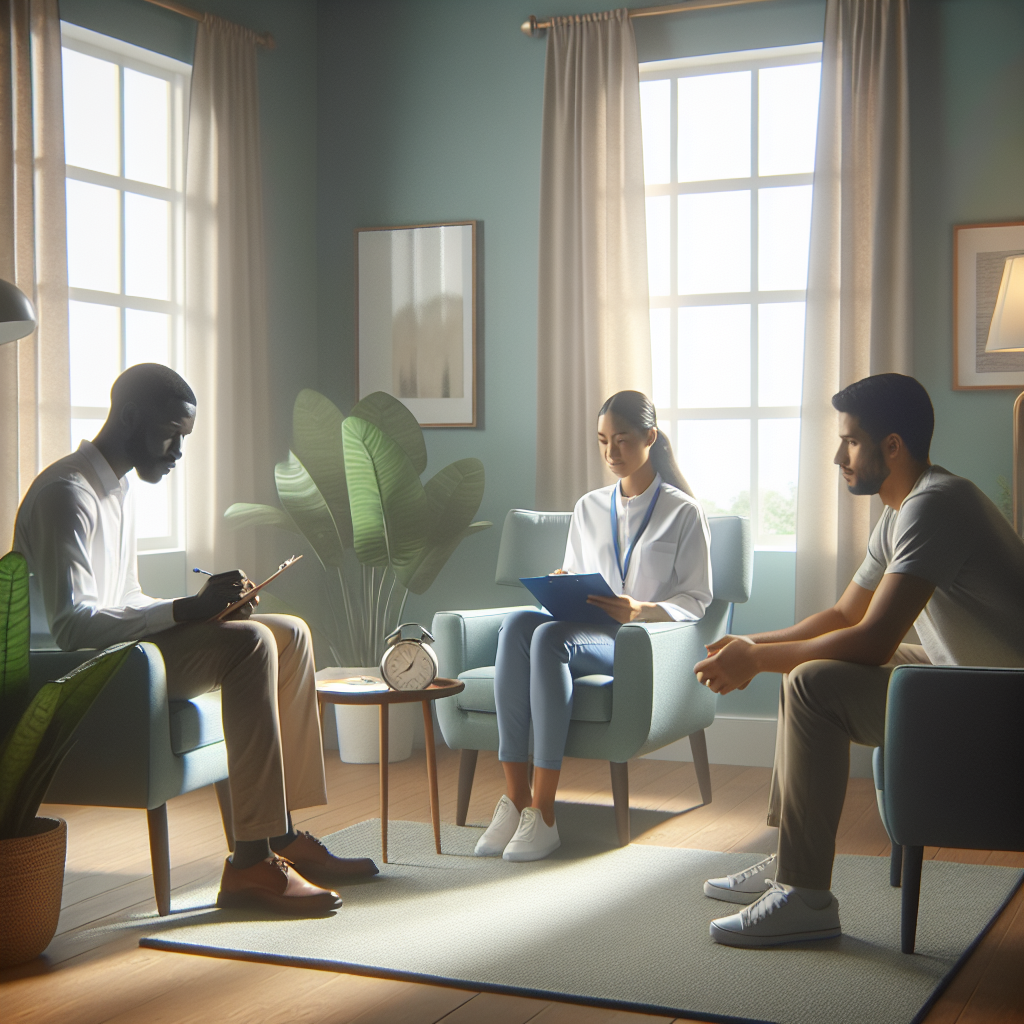At the heart of mental health treatment are dedicated professionals like Behavioral Health Technicians (BHTs), who play a crucial role in supporting individuals on their path to recovery. BHTs are paraprofessionals trained to provide therapeutic care to patients dealing with various behavioral issues, such as mental health disorders, substance abuse, and developmental delays. What do behavioral health technicians do? They are the backbone of the therapeutic environment, working closely with psychiatrists, psychologists, social workers, and counselors to implement comprehensive treatment plans.
The responsibilities of a BHT are diverse and include observing patient behavior, documenting interactions and progress, assisting with daily living activities, and facilitating group therapy sessions. These technicians are also skilled in crisis intervention, providing a stabilizing presence in emergency situations. Their empathetic and observant nature ensures patients receive the attention they need while fostering an environment that promotes healing and growth. BHTs are often the first to notice changes in a patient’s behavior, making their role vital in adjusting treatment plans and interventions promptly.
Mental Health Matters – Make it a Priority! If you or a loved one are ready to begin regaining autonomy over your health and well-being, know that we’re here for you. Let us guide you through your recovery journey and enable you to lead the happy, healthy, and fulfilling life you deserve. Contact us for Mental Health Services in New Jersey.
Key Responsibilities of Behavioral Health Technicians

The day-to-day tasks of Behavioral Health Technicians are foundational to the therapeutic process. They are tasked with several key responsibilities that directly contribute to the well-being and improvement of their patients. One of their primary duties is to monitor patients and provide direct care, which often includes aiding with personal hygiene, meals, and other basic needs. They work under the guidance of mental health professionals to carry out specific behavioral plans and interventions, tailored to individual patient needs.
BHTs also facilitate recreational and therapeutic activities which are designed to improve social skills and promote better mental health. They are responsible for documenting patient progress and relaying pertinent information to the treatment team. This documentation is crucial for evaluating the effectiveness of treatment plans and making necessary adjustments. Additionally, BHTs play an important role in maintaining a safe and supportive environment for all patients, often intervening to de-escalate situations and ensure safety protocols are followed.
Effective communication skills are imperative for BHTs, as they are the liaison between patients and the medical staff. They must be able to convey complex information in a clear and compassionate manner. Their observational skills are equally important, as they must be vigilant to changes in patient behavior that could indicate a shift in mental status. The meticulous and compassionate work of Behavioral Health Technicians is a testament to their commitment to facilitating recovery and enhancing the quality of life for those they serve.
The Work Environment and Daily Life of a Behavioral Health Tech

The work environment for a Behavioral Health Technician (BHT) is as diverse as the needs of the patients they serve. BHTs typically work in settings such as psychiatric hospitals, residential treatment centers, clinics, and community health organizations. The daily life of a BHT is structured around the care schedules of their patients, often involving shift work that can include nights, weekends, and holidays to ensure continuous support.
In these environments, BHTs are expected to adapt to a fast-paced and unpredictable nature of work. They must be prepared to respond to crises and provide immediate assistance when needed. The ability to remain calm under pressure and think critically is essential, as BHTs can be exposed to challenging behaviors and emergency situations.
BHTs often participate in team meetings to discuss treatment plans and patient progress. Collaborative communication with therapists, psychologists, and other healthcare professionals is a daily aspect of their role. The facilities where BHTs work are designed to create a therapeutic atmosphere, and part of their job is to ensure this atmosphere is maintained, contributing to a supportive and healing environment for all patients.
While the role can be emotionally demanding, many BHTs find great personal and professional fulfillment in their work. The opportunity to make a tangible difference in the lives of individuals struggling with mental health issues provides a sense of purpose and accomplishment. It’s a career that demands resilience, empathy, and a continuous commitment to personal and professional development to effectively support the complex needs of patients.
Required Skills and Qualifications for Behavioral Health Technicians

To succeed as a Behavioral Health Technician, certain skills and qualifications are paramount. Firstly, a high school diploma or equivalent is typically necessary, with many employers preferring candidates who have completed relevant post-secondary education, such as a degree in psychology, social work, or a related field. Certification as a Behavioral Health Technician, which can be obtained through various professional organizations, enhances a candidate’s employability by validating their expertise and commitment to the field.
Key skills for a BHT include strong communication abilities, both for interacting with patients and for working collaboratively with a healthcare team. They must have the capacity for empathy and patience, to support patients with sensitivity and understanding. The role also demands a high level of organizational skills, as BHTs often manage multiple patients and treatment plans concurrently.
Additionally, BHTs need to possess crisis intervention skills, enabling them to handle difficult situations effectively and maintain safety. Knowledge of mental health conditions, treatment modalities, and behavioral management techniques is also essential. Given the nature of their work, BHTs must be able to maintain professional boundaries and adhere to ethical guidelines at all times.
Physical stamina is another important requirement, as the job can be physically demanding with the need to assist patients or respond to emergencies. Finally, BHTs must be committed to ongoing learning and development in the field of mental health to keep their skills and knowledge up to date, ensuring the highest level of care for their patients.
The Impact of Behavioral Health Technicians on Patient Recovery
Behavioral Health Technicians (BHTs) play a vital role in the recovery process of patients struggling with mental health issues, substance abuse, or behavioral disorders. Their impact is substantial as they provide consistent care and support that contributes to a patient’s overall treatment plan. BHTs work closely with patients to implement therapeutic strategies developed by mental health professionals, which often involves teaching coping mechanisms, life skills, and promoting positive behavior changes.
Through one-on-one sessions and group activities, BHTs build trusting relationships with patients, fostering a safe and supportive environment conducive to recovery. They are often the first to notice changes in a patient’s behavior, which can be crucial for adjusting treatment plans promptly. Their observations and documentation can lead to insights that inform the direction of care, tailoring it to better meet the individual needs of each patient.
The presence of BHTs in treatment settings can also provide a sense of stability for patients, as they see familiar faces regularly. This consistency is key for those who may feel vulnerable during treatment. Moreover, BHTs often act as liaisons between patients and the broader healthcare team, ensuring that communication is fluid and that patient concerns are heard and addressed.
Ultimately, the compassionate care provided by BHTs can significantly enhance patient engagement in treatment, which is strongly linked to positive recovery outcomes. By reinforcing treatment plans and offering emotional support, BHTs help patients regain control over their lives, contributing to their journey towards mental health and well-being.
Career Path and Advancement Opportunities in Behavioral Health

Career growth and advancement opportunities for Behavioral Health Technicians are abundant, making it an attractive field for those passionate about mental health and patient care. Entry-level BHTs can gain experience and enhance their skill set through hands-on work, which may lead to positions of greater responsibility. Many technicians choose to further their education by pursuing degrees or certifications in psychology, counseling, or social work, opening doors to roles such as licensed counselors, therapists, or clinical supervisors.
For individuals looking to advance, many institutions offer tuition assistance or reimbursement programs to support their employees’ educational goals. This investment in professional development not only benefits the technician but also improves the quality of care provided to patients. Leadership roles within behavioral health facilities, such as team leads or program directors, become attainable as BHTs gain experience and education.
Moreover, the growing recognition of mental health’s importance in society has led to an increased demand for skilled professionals in the field. This societal shift ensures that the career path for BHTs will continue to expand, offering stability and a chance to make a significant impact on the lives of individuals and communities.
Mental Health Matters – Make it a Priority! If you or a loved one are ready to begin regaining autonomy over your health and well-being, know that we’re here for you. Let us guide you through your recovery journey and enable you to lead the happy, healthy, and fulfilling life you deserve. Contact us for Mental Health Services in New Jersey.
















